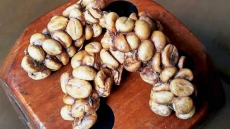Why mycobacteria - a family that includes the microbe that causes tuberculosis (TB) - survive oxygen limitation has long been a mystery but not any more. A discovery could lead to a revolutionary class of antibiotics to tackle TB.
Researchers have found that hydrogen is a key factor that enables mycobacteria to survive oxygen-limitation over long periods.
"Mycobacteria grow through combusting their preferred carbon-based fuel sources using oxygen. However, they can also somehow survive for months or years when their oxygen supply is exhausted," said Greg Cook, a professor from University of Otago in New Zealand.
"For example, in people with latent TB infections, mycobacterium tuberculosis bacteria are walled in by clumps of immune and other body cells in what is thought to be an extremely low oxygen environment. However, such patients must be monitored for rest of their lives in case the bacteria become active again," he added.
The bacterium is able to quickly switch its cellular metabolism from a primarily oxygen-based one over to one that uses fermentation for energy production instead.
This metabolic mode depends on the production and recycling of molecular hydrogen, a high-energy fuel and diffusible gas.
These cells produce hydrogen to ensure their survival until they once again have access to sufficient oxygen for growth.
The researchers established that mycobacterium smegmatis metabolises molecular hydrogen using three enzymes called hydrogenases.
One hydrogenase produces hydrogen, whereas the other two consume it. These hydrogenases are activated under oxygen starvation by a master regulator called DosR.
The researchers found that strains of mycobacterium smegmatis in which the genes for the hydrogenases or the regulator DosR had been 'knocked out' experienced a hundred-fold reduction in the long-term survival compared to the normal bacterium.
The study appeared in the journal Proceedings of the National Academy of Sciences.





